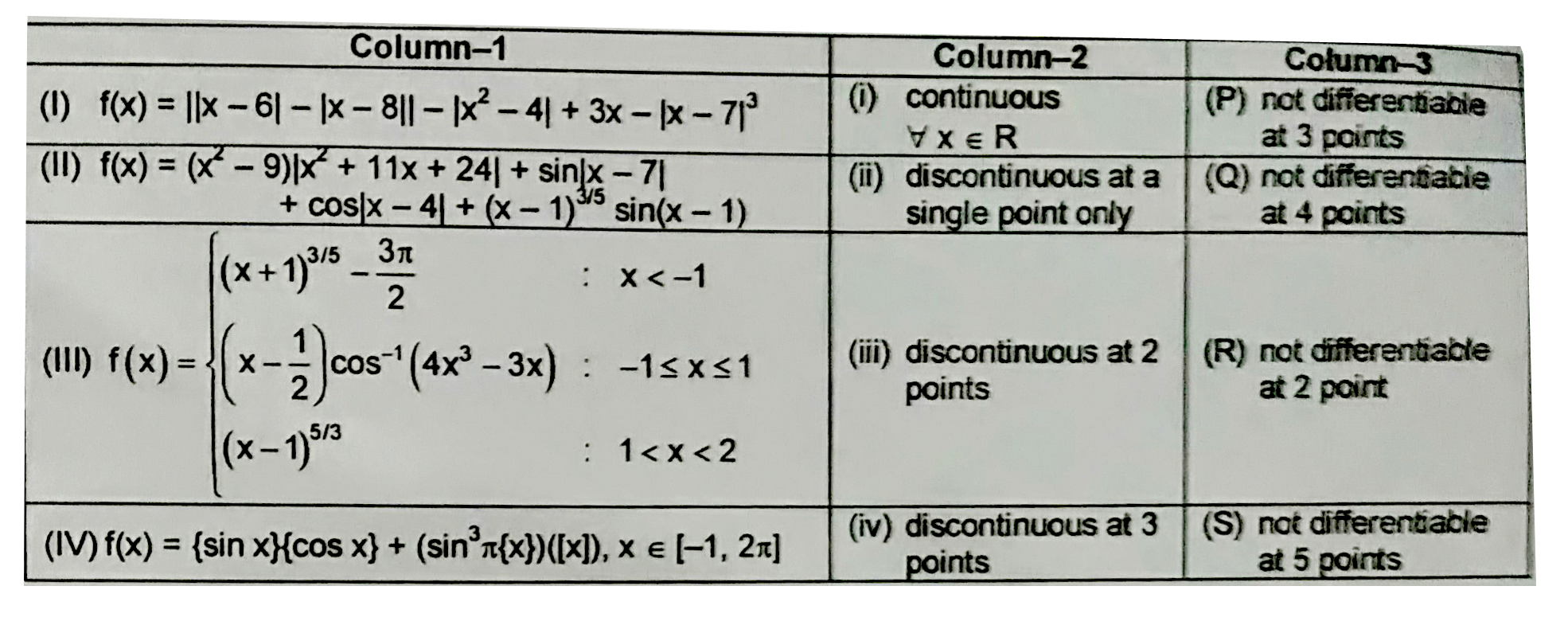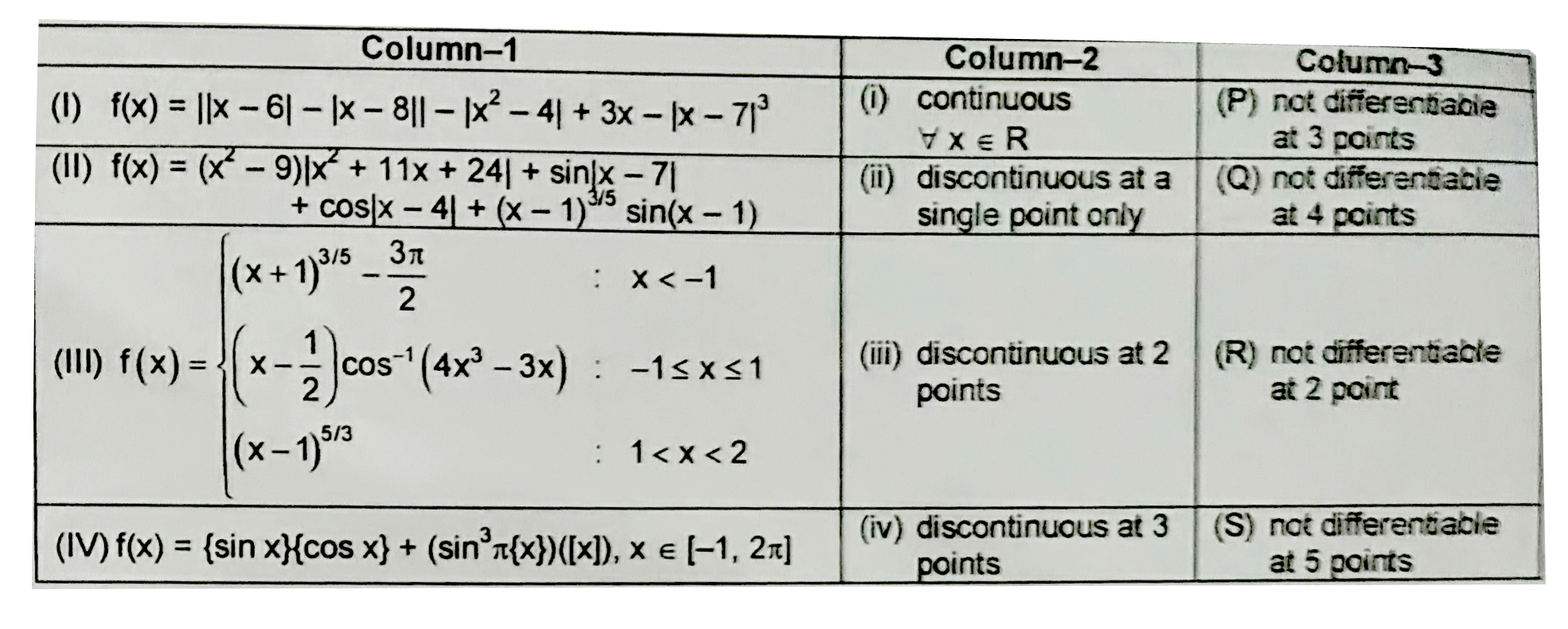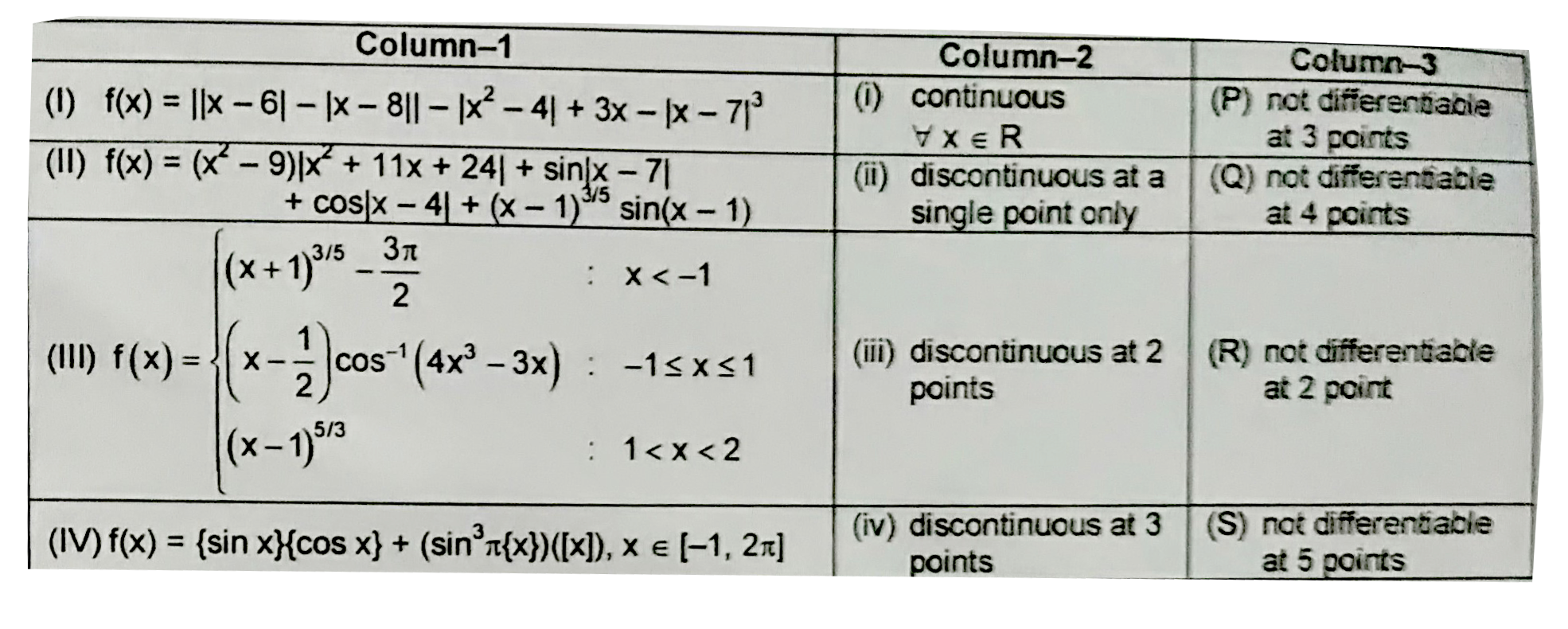Column 1: real valued function, Column-2: domain of the function, Column 3: range of the function. Match the following Column(s) (where [.] denotes the greatest integer function and {.} denotes fractional part function)
![Column 1: real valued function, Column-2: domain of the function, Column 3: range of the function. Match the following Column(s) (where [.] denotes the greatest integer function and {.} denotes fractional part function) Which of the following combination is correct?](https://d10lpgp6xz60nq.cloudfront.net/physics_images/FIT_JEE_PT1_P1_E01_049_Q01.png)
Which of the following combination is correct?
A
(II)(iv)(P)
B
(IV)(i)(P)
C
(II)(i)(P)
D
(IV)(i)(R)
Text Solution
The correct Answer is:C
(I) (3−1)33≤|x−1|3+|x−3|3<∞
(II) u=sin(In(√4−x21−x))+cos(In(√4−x21−x))
∴0≤√4−x21−x<∞
−∞<In(√4−x21−x)<∞
So, −√2≤u≤√2
(III) Let |x+5|=t,g(t)∈(0,12]−{14}
g(t)=(t−2)(t−2)(t+2)
(IV) θ≤cos−1x≤π
−∞<In(cos−1x)≤Inπ<2
|
Topper's Solved these Questions
Similar Questions
Knowledge Check
Column -1 : real valued function, Column -2: continuity of the function, Column - 3: differentiability of the function, Match the following Column(s)

(Whre [.] denotes the greatest integer function and {.} fractional at function)
Which of the following combination combination is correct?A(II)(iii)(S)B(III)(I)(P)C(II)(ii)(R)D(III)(i)(R)Column -1 : real valued function, Column -2: continuity of the function, Column - 3: differentiability of the function, Match the following Column(s)

(Whre [.] denotes the greatest integer function and {.} fractional at function)
Which of the following combination combination is correct?A(I)(i)(R)B(III)(ii)RC(IV)(iv)(P)D(I)(i)(Q)Column -1 : real valued function, Column -2: continuity of the function, Column - 3: differentiability of the function, Match the following Column(s)

(Whre [.] denotes the greatest integer function and {.} fractional at function)
Which of the following is correct?A(I)(i)(S)B(IV)(i)(S)C(II)(ii)(S)D(II)(ii)(P)
Solve : 4{x}=x+[x](where [⋅] denotes the greatest integer function and {⋅} denotes the fractional part function.
View SolutionSolve 1x+1[2x]={x}+13where [.] denotes the greatest integers function and{.} denotes fractional part function.
View SolutionThe sum of solutions of the equation 2[x]+x=6{x} is (where [.] denotes the greatest integer function and {.} denotes fractional part function)
View SolutionConsider the function f(x) = {x+2} [cos 2x] (where [.] denotes greatest integer function & {.} denotes fractional part function.)
View SolutionSolve the following inequalities (where [*] denotes greatest integer function and {*} represent fractional part function) [2x2−x]<1
View Solution
